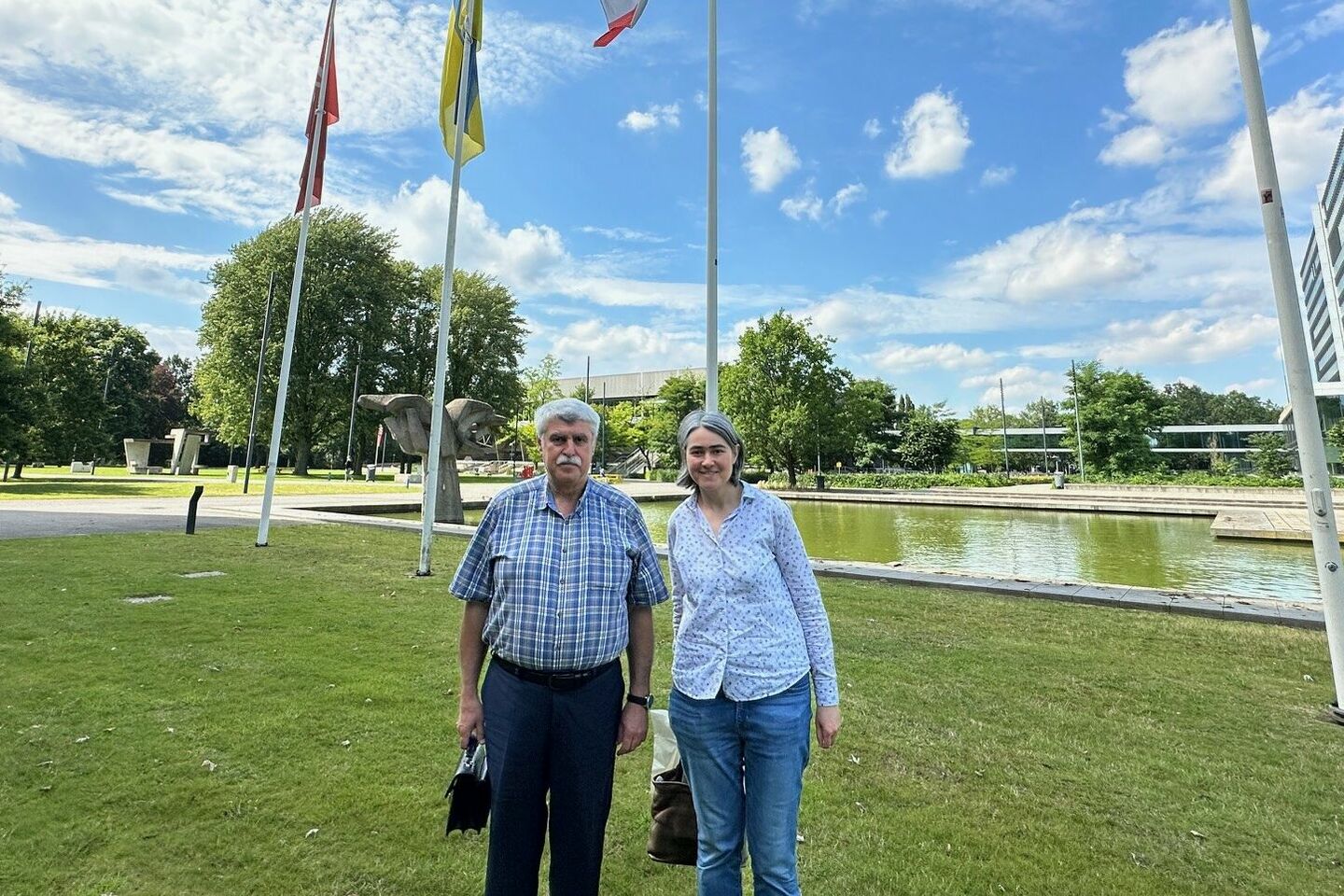
Associate professor Sveta Zinger reunited with father from Ukraine
After an arduous journey that took 48 hours, they fell into each other’s arms at Schiphol Airport
Cursor talked to Ukrainian Associate Professor Sveta Zinger right after the war in her native country started. If you’re here and your family is in a country where war is raging, this creates tension every day: will I ever see my loved ones again? After two years of uncertainty, a great moment arrived for Zinger: her father was finally able to travel to the Netherlands and feel the warm embraces of both his daughter and his grandchildren.
In a bigger article that Cursor published in March 2022, we described what a day in Sveta’s life looked like. Every day, she was woken by her phone beeping: a text from her father – still living in Ukraine – as a sign of life. What a relief, he’s still there. But there was also the fear that one morning, her phone would stay silent.
Now, over two years later, he was finally able to travel to the Netherlands for father and daughter to be reunited. July 20 was the big day: dad Anatoliy touched down at Schiphol Airport. After a journey that took 48 hours, he was able to hug his daughter. “A relief both for myself and for him,” Zinger says in high spirits. “The last time he was here was well before the war started. My children have grown a whole lot since then.”
Now, everything is different. People don’t smile or laugh. You feel the tension in the street, the nervousness
“We talked on the phone a lot of course,” says Sveta, “but that’s not the same.” Anatoliy looks over at his daughter. “Sveta tends to worry a lot, maybe that’s just what women do. But now that I’m here, she’s a bit calmer.” This draws a thin smile from Sveta. “There’s a huge amount of uncertainty there, about everything, every second. Life is like that anyway, of course, but over there it’s more obvious. Before the war, life in Ukraine was pretty much like it is here. There were stores, hospitals, parks, and cultural places we could go on vacation. But now, everything’s different. Many things have been blown to pieces. I miss being together in Ukraine. And the food.” Her face lights up with a smile of rare proportions.
“It’s so delicious, the local food. When I think back to the cake I bought when I was in Ukraine just before the war started, one of those big, delicious cakes. I ate half of it. I simply couldn’t stop, it was that good. And I didn’t know that it would be the last one for a while.” Her father continues. “Now, everything is different. People don’t smile or laugh. You feel the tension in the street, the nervousness.”
Former KGB building
In the Netherlands, we are increasingly talking about a war that has been lurking under the surface ever since the invasion of Crimea in 2014, but Anatoliy adds a bit of nuance to this. “It still took us by surprise in 2022. That’s because in the years before that, not a lot of human casualties had been made in Crimea. The atmosphere was different. There was a dividing line between a local conflict and a peaceful existence in the rest of the country. That’s exactly what changed all of a sudden on February 24, 2022.”
Sveta’s parental home is located very close to a building of the national security agency, the former KGB. An interesting target for Russia, of course. “Several missiles came down in the area,” Anatoliy says. It was sheer luck that their home wasn’t hit. Nonetheless, everyone in Ukraine has lost a family member, friend, or acquaintance. That’s why seeing each other alive and in the flesh feels all the more special.
As the distances are so big, I had to spend the night on the road and switch to another car with driver. It’s too big a risk to be stuck at the border for a long time
Via Moldova
His journey was nothing short of exhausting. It took 48 hours to get to Dnipro, in the center of the country, to Amsterdam. Ukraine air space is closed and traveling by land is not without risk. Anatoliy: “You have to avoid the frontlines and there are checks on the way. Men who are eligible for military service can’t leave the country. That doesn’t apply to me because I’m too old, but I’m subjected to the checks all the same.”
The journey took him from Dnipro to Moldova by car, which was arranged through informal channels. “As the distances are so big, I had to spend the night on the road and switch to another car with a driver. It’s too big a risk to be stuck at the border for a long time. Once in Moldova, we could head to Chisinau to take a flight to Schiphol from there. It used to take about 7 hours door to door, which has now turned into 48 hours, but it’s more than worth it.”
Power is power
“The winter of 2023 was very tough. There were many blackouts due to the Russians attacking power stations. In Ukraine, heating and warm water are powered by electricity, which meant a lot of apartments in particular didn’t have heating. It was freezing inside. But in high-rise apartment buildings, even getting the water to the upper floors requires electricity. And how about the elevators? Many old people were afraid to leave their homes, worried that the elevator would be out when they returned and they’d have to walk up dozens of floors.”
Anatoliy: “Ukraine uses a lot of nuclear energy. Russia destroyed many non-nuclear power stations. This is a problem in summer when maintenance is normally performed on the nuclear ones. Those are the moments that one would normally fall back on non-nuclear energy, but that’s impossible now that 90 percent have been destroyed.” He shows us a timetable. On the left, the days of the month and their dates appear, above the times. Crosses indicate when you certainly won’t have electricity, when you probably won’t have electricity, and when you will have electricity. The latter moments span around 6 to 7 hours per day. “Which sums up the problem: everyone turns on everything at the same time in that window, often resulting in a power outage due to grid overload.”
Sveta nods. “I think that people who’ve never experienced this can’t fully imagine what it’s like.” Her father agrees. “Humanitarianism is paramount. I think we should do whatever it takes to make sure the war stops. Politicians have a major role in this. I understand countries may disagree about what kind of assistance to offer, but joint action is simply required to put an end to wars.”
Thinking about the future, the duo is hopeful, particularly because of the help from the West. Anatoliy: “Ukraine managed to free a big area from Russians thanks to the heroism of the Ukrainian army, but the many European countries that helped out really made a difference as well. I’m very grateful to the Netherlands for the leading role it took in this respect under Mark Rutte. But we’re definitely not out of the woods yet. Your help continues to be of the essence,” he says, appealing to the Dutch people as a whole.
I need to go back, and I will. It’s like a tree that has been rooted somewhere for a long time; you don’t want to move it
‘A peaceful sky above our heads’
Anatoliy thinks back to his childhood. “In those days, the Second World War was still fresh in the minds of the people and that’s why they said that peace was more important than anything. Back then, that seemed like something theoretic to me. Now I know that peace is the most important day-to-day value.” Sveta: “When I was little, older people would wish each other – translated literally – ‘a peaceful sky above our heads’. I had never known that sky to be anything but peaceful and thought ‘those old folks are saying random stuff’. Those things won’t ever happen again. Boy, was I wrong.”
When asked if he wants to stay here, Sveta’s father answers with a resounding no. “I need to go back, and I will. It’s like a tree that has been rooted somewhere for a long time; you don’t want to move it.” Her father is old school, a man fond of using expressions. “I’ve always been there. It’s a bit quieter over here, but that’s where I belong. And the land needs to be worked, the mines removed. We have to sow to be able to reap again, one day.”
The Final Speech
Anatoliy wants to pass on a message to everyone reading this. “For no one to cherish the desire to occupy another territory. Don’t create any conflict that may lead to war, wherever in the world. And go vote if you’re blessed with democratic elections, make your voice heard.”
Sveta would like to summarize things with a quote from a movie that stuck with her: The Great Dictator (1940) by Charlie Chaplin. “In his final speech, he says ‘We think too much and feel too little’. His message was to rise against dictators and come together in peace. If people really knew what a war feels like, they’d never start one,” is Sveta’s conviction.
Sveta, her father, and her family spent two great weeks together in the Netherlands before he returned to Ukraine.

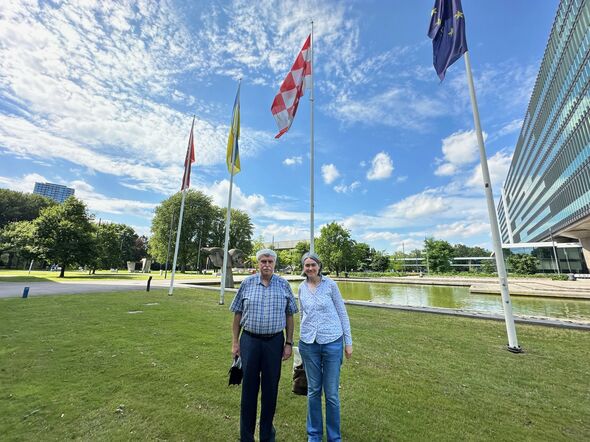
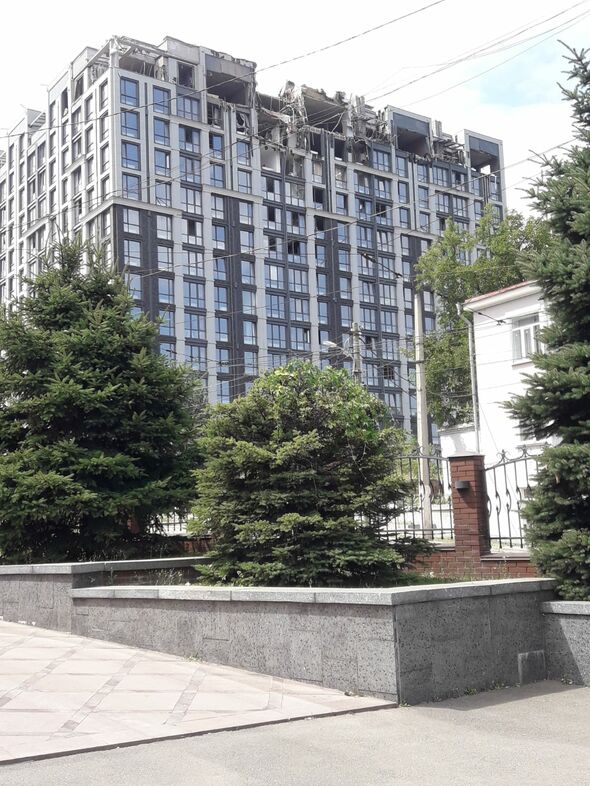
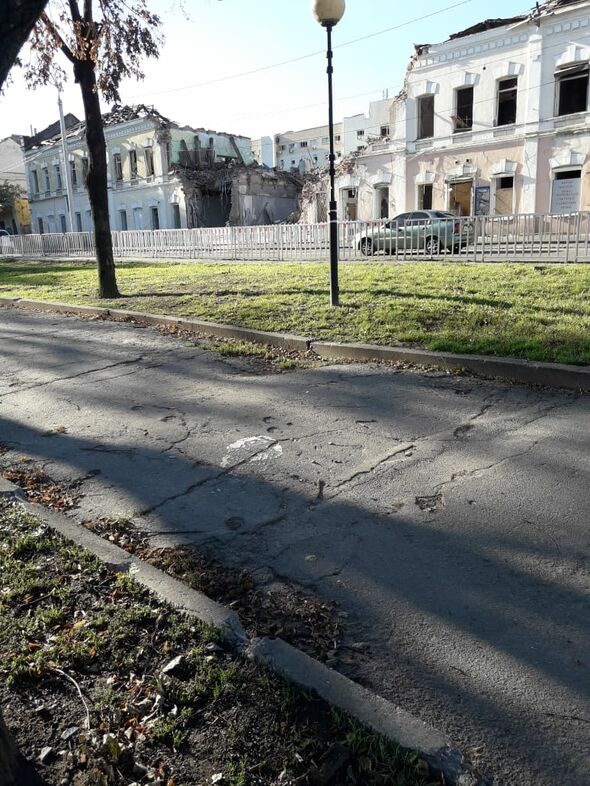
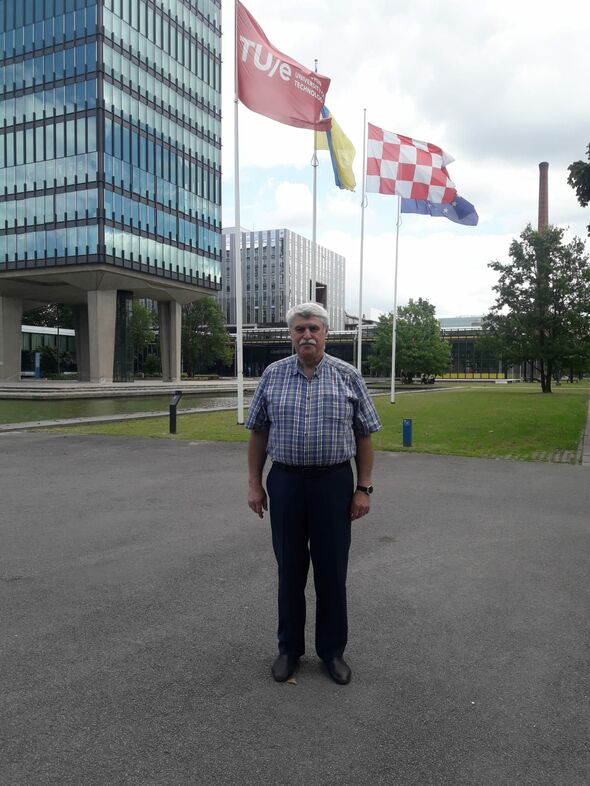
Discussion